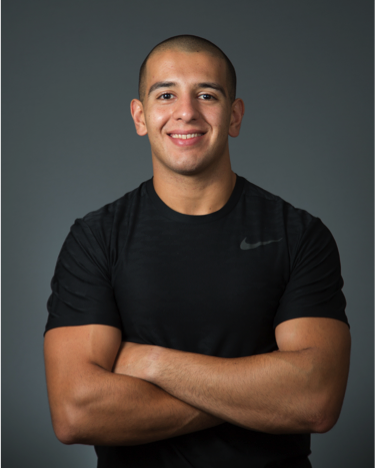Today’s guest post comes courtesy of Sydney, Australia based strength coach Meer Awny.
There’s a common theme in the fitness industry, especially amongst young and upcoming coaches/trainers, that in order to gain recognition or notoriety there’s some “deep state” secret algorithm that exists:
Social media follows + number of letters you can squeeze next to your name in your bio / (selfie to shirtless pic ratio) x (# of days you brag about either going to CrossFit or how you feel so UHmazing you feel going ketogenic[footnote]No one gives shit you insufferable a-hole[/footnote])
In fact, it’s pretty simple: get good at what you do, be consistent, and consider some of the strategies Meer points out below.

Is Age Just a Number? Is There a Way To Be Taken Seriously Before 30 In the Fitness Industry?
You’ve graduated with a piece of paper and want to work with athletes.
I mean of course they should work with you, you’re now one of the exclusive 15,000 fresh graduates who have inundated the industry and you…are…important.
But you quickly realise that’s not the case.
The title of “Sports Scientist” doesn’t hold career certainty and so you find yourself working on a gym floor, putting weights away and training general population clients. Now, there should be no shame in being able to apply good coaching principles to a wider audience.
But you also wanted to train the sports stars and get recognition.
With the advent and saturation of social media, it’s easy to feel pressured to have a voice and make a contribution to the field you’re so passionate about.
But often we fail to contextualise and ask how did the person I look up to get to where they are?
Instead of asking the harder questions and actually doing the work, the list of books to read gets larger, and the search for the perfect Instagram filter continues.
That’s not always the answer.
Eventually you come to realise the ‘big names’ in the industry aren’t the same age as you, have a lot more experience, and go out of their way to provide consistent, quality content for free and don’t complain about it.
You just want to be taken seriously despite the “Oh you’ve got plenty of time” diatribes every time you announce you’re a 24-year-old coach.
But what is experience?
We’re told that it’s learning through trial & error and that with more relative experience, through the years, you gain wisdom. And so you vision the day you’re a 35-year-old coach working with all the people you hoped you would from day one.
Age is wisdom, right?
Or is the value of the time spent more important then the time itself?
Here are some ways to add more value to the time you have rather than waiting for the clock to provide you with experience.
1. Volunteer
Get comfortable with this.
If you aren’t willing to give up your time, as precious as it may seem, then things aren’t going to bode well for you. It doesn’t necessarily mean an internship (we’ll get to that), but it does mean being genuine and selfless when it comes to learning and working with people.
This includes taking the time to talk and to have conversations with your athletes and clients.
Remember: To steal a well-known quote from strength & conditioning icon, Mike Boyle:
“Your athletes don’t care about how much you know until they know about how much you care”.
2. Internship/Mentorship
One of the best pieces of advice I ever received was “Find the person that is doing what you want to do and go and learn from that person.”
In 2017 I packed up for five weeks and flew across the world to Denver, Colorado (I’m an Aussie).
In those five weeks I grew new branches on my tree of networks (BTW – I didn’t know what a metaphor was until I was 17), made friends, and had the opportunity to learn from one of the best strength coaches in the field…Loren Landow.

Not to paint a smooth picture, the process in making this happen took time, patience and persistence.
Words can’t describe how much I learned and how indebted I feel for the opportunity. Also, internships allow an opportunity to “ooch,” or to test out and dip your toe into an area or field you’re not too experienced in.
You may feel like you want to work with athletes (or circus performers or pre & postpartum women)…but how do you really know?
An internship offers an opportunity to gain experience, but also a way to get a taste for whether or not you want to be in this field or work with a particular demographic.
3. Networks
The cliché will always stand:
“Who you know is more important than what you know.”
Reading all the books and knowing every muscle insertion and programming variable will not trump the friends you have in the industry.
Act on this by attending conferences, worthwhile seminars, and giving up your time to learn from people who can improve your attributes as a practitioner and more importantly, as a person.
Attendance alone is not enough.
You need to be active in introducing yourself (even if your bio isn’t ‘Hot’), taking emails/phone numbers, asking questions and then following up within two weeks post event.
Getting good at this will open opportunities, and also give you some credibility as a young coach.
4. Patience & Expectations
Setting realistic goals and expectations are important.
Don’t expect to work with world champions in the first year.
But don’t deny that you will eventually.
Put in the work, get good at what you do, be consistent, and it stands to reason people will seek you out.
5. Hobbies & Yourself
Being immersed in the ‘field’ is great.
Know the content and all the science.
But understand that this job involves communication with lots of different people; so being broad in your knowledge will help. Spend time away from reading sport related material, develop new hobbies, read outside of the common ‘self development’ section of the bookstore, and you’ll find a heightened ability to connect with people from all ages and sorts.
A strong mantra to apply daily is:
“How you do anything is how you do everything.”
Constantly show up and make it clear that you care about the people you work with. It shouldn’t be too hard; otherwise you might be in the wrong field. Gary Schofield did a great presentation and used the metaphor of “dogs and monstah’s” (He had a pretty cool Boston accent-almost as cool as Matt Damon”) to describe two types of people (10s mark).
The dog needs guidance, treats, and their hand to be held.
The monstah asks ‘What more can I do?’ and gets after it. Time is not irrelevant, and experiences will come with years of effort. That can’t be denied. What you can do is be a monstah and apply some of the mentioned principles to be taken seriously before 30.
About the Author
 Meer Awny is a Strength & Conditioning coach & Personal Trainer from Sydney, Australia.
Meer Awny is a Strength & Conditioning coach & Personal Trainer from Sydney, Australia.
His work is primarily centred on working with combat sport athletes, ranging from amateur levels to national competition, as well as top #10 ranked athletes in the world; across a variety of martial arts.
Meer has travelled the world to better his development of the ‘fighter’ and himself as a coach, and has spent time with multiple UFC fighters and learnt from some of the best combat sport performance coaches in the field.
In his spare time Meer likes to attend coffee tastings, scuba dive, read, cook, travel and continually practice Brazilian Jiu Jitsu and boxing.
You can find Meer on Instagram HERE.




